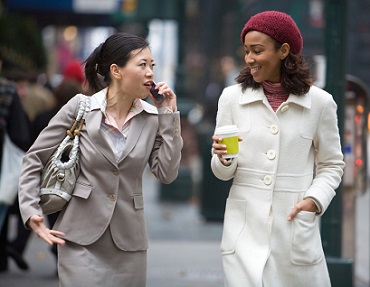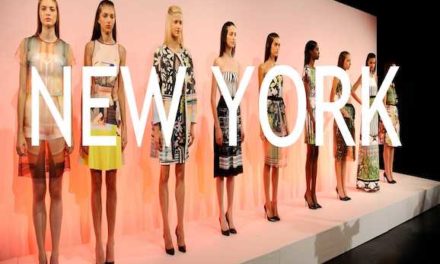 In the summer comedy, Obvious Child, Jenny Slate stars in Gillian Robespierre’s film about a new age abortion romance. It is a strangely relatable story that follows a young comedian living in New York City. The audience follows Slate’s character through one night stands, pregnancy tests and her family relationships. She is going through what I have coined the “pre-mid-life crisis.”
In the summer comedy, Obvious Child, Jenny Slate stars in Gillian Robespierre’s film about a new age abortion romance. It is a strangely relatable story that follows a young comedian living in New York City. The audience follows Slate’s character through one night stands, pregnancy tests and her family relationships. She is going through what I have coined the “pre-mid-life crisis.”
In modern media there has been a surge of content based upon the struggles and tribulations of the young adult, specifically that of the 20-30 year old female. From television shows such as Girls and Broad City to movies like Obvious Child and nearly anything Sofia Coppola has ever churned out. For some reason it’s specifically interesting to watch girls try to grow up in a city where everything goes wrong for them.
Why is the American media so obsessed with the downfall of young (white) women? I like to think it’s because the audience knows that in the end, these urban heroines will make it through their pre-mid-life crises. But deep down I know that the real reason is probably deep-seated in the stigma of young women being irresponsible until they are married with children. What I have yet to figure out is whether or not this is a result of greedy media consumption or the result of some heavily veiled misogyny.
Let’s go through a recent list and you can draw your own conclusions as to why we like watching women falter in times of stress:
- In Obvious Child, Slate’s character handles some rough circumstances, however her problems are almost completely dissipated when she decides to accept a new man in her life. Coincidence of the rom-com trope or an unintentional product of a male dominated society?
- Broad City presents two best friends living in New York and trying to survive their almost adulthood. Often portrayed as lazy stoners who just barely hold on to their low wage jobs, it makes you wonder that even in this Amy Poehler produced gem, if things would get better for these girls if
they had steady boyfriends or fiancées. Although Broad City portrays the main characters as enjoying their lives and not worrying about what others think, it is an interesting dichotomy. For example, whereas people tend to watch Workaholics to laugh at the silly/dangerous antics of the three main pseudo-men, Broad City plays out similarly to a reality show in the sense that the audience does not know what to expect, and they hope that they will be a part of the finale when these women will find their “sanity.” So I must ask again, in this scenario, is it sketch comedy that doesn’t realize what it’s perpetuating, or is it a plan to cash in on the early struggles of females growing up in a society where there are only men to save them from recklessly enjoying their lives?
- When you take a “pioneer” such as Lena Dunham and her show Girls, it makes you wonder why most of the time when the young women are feeling down because of a reason other than men, it is men who improve their day/week/life/etc. If you have ever seen an episode of Girls there is at least one story line per episode dealing with the issue of retaining a lover or finding one.
 It’s difficult in Hollywood to create strong female characters, let alone ones that don’t succumb to the unbelievable struggles of being a white young woman in one of the densest cities in the United States. While these women are incredibly heartfelt and “real,” there is a lot missing from the stories about living in the city as a female, specifically women of color as well as women who don’t fall into the gender norm.
It’s difficult in Hollywood to create strong female characters, let alone ones that don’t succumb to the unbelievable struggles of being a white young woman in one of the densest cities in the United States. While these women are incredibly heartfelt and “real,” there is a lot missing from the stories about living in the city as a female, specifically women of color as well as women who don’t fall into the gender norm.
That being said, why don’t you think these women are included? Well a possible answer is that they wouldn’t play out well into the formula that Western media has created. How can a man fix a lesbian woman’s life? Let alone a queer woman of color. Does he really know what she’s going through? How can he deign to help her out when he won’t benefit sexually or physically in the long run? Why is being white, straight, and female in New York City the new Cinderella story?
These are the questions we should be asking our content creators.

















